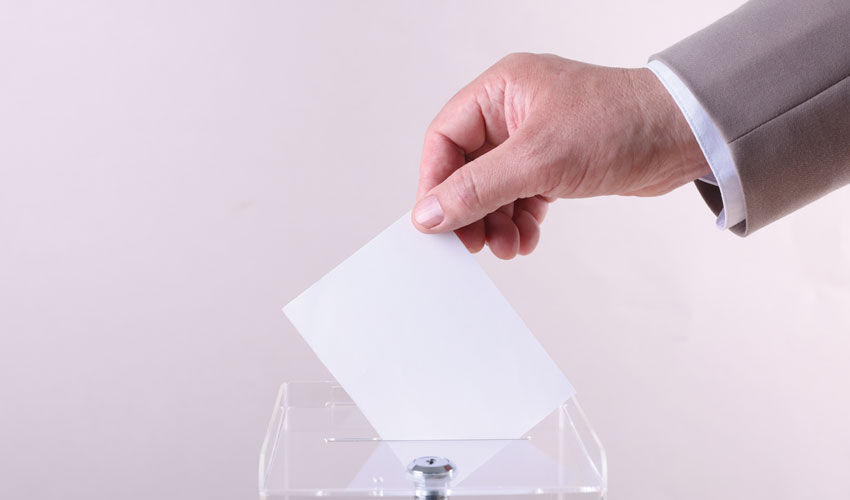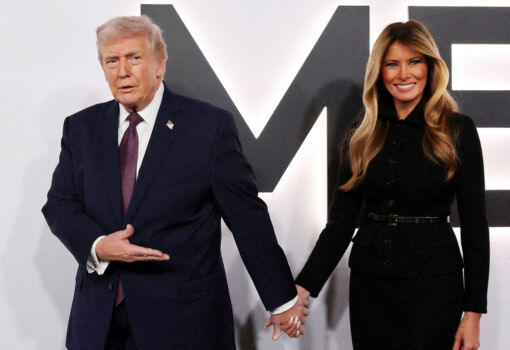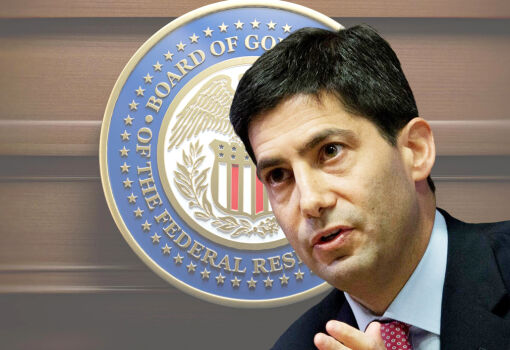
Controversial criteria
“The Electoral Code clearly states the criteria for organizing polling stations, and it is good that they are now clearly enshrined in the law. The main criterion is the dynamics of voter participation. This is what explains the increase in the number of polling stations. Another criterion is the data of the Ministry of Foreign Affairs, and there is also a mechanism of pre-registration,” explained CEC Chairwoman Angelica Caraman.
As for the voters from the left bank of the Nistru River, the number of polling stations and ballots is calculated based on the average turnout in the last three elections. This year, 12 polling stations will be opened here and it is planned to print 23,500 ballot papers.
According to Vadim Filipov, who represents the opposition in the CEC, the Electoral Code does not specify that this particular criterion (average turnout) should be applied. Why then is another criterion – the maximum – used for polling stations abroad? Last year, more than 26,000 Medova citizens with residence registration on the left bank of Nistru river voted, while the number of ballots that the CEC intends to offer them is only 23,500. At the same time, 320 thousand voted abroad, and more than a million ballots are allocated – three times more.
Filipov called this method beyond the Electoral Code and discriminatory.
At the parliamentary elections on September 28, the largest number of polling stations will be opened in Italy (75), as well as in Germany, England, France, Romania, and the USA. The fact that only two polling stations will be opened for Moldovan citizens living in Russia has caused great public debate. After all, this year there has been a significant increase in applications from them for pre-registration to vote. The CEC Chairman considers these data “unreliable”.
“For five years, since the introduction of this mechanism, about five thousand voters registered in the Russian Federation. Suddenly, over the last two years, they became more than seven thousand in 2024, and now it is already over 12 thousand. In other countries, the trend is the opposite,” Karaman told Public Radio. Asked if these registrations are reliable, Karaman said, “Our analysis shows that they are not. Because they are made from the same e-mail address, where only one digit or letter changes. But this is not a real e-mail address. Moreover, we have appeals from citizens who claim that they did not undergo such registration”.
Olga Cebotari, a former employee of the Economic Cooperation Department of the CIS Executive Committee from Moldova, candidate of the Patriotic Bloc, stated at a meeting with members of the PACE election mission that “there is no clarity regarding the methodology used to calculate the required number of polling stations both abroad and in Transnistria. We believe that at least 30 polling stations should be opened on the left bank of the Nistru River. We know that politicians influenced the CEC decision on this issue”. And at a meeting with the OSCE pre-election mission she said that the conditions of voting abroad violate the principle of equality of citizens’ rights to participate in elections. She drew attention to the fact that “not all Moldovan embassies observe the principle of impartiality, which contradicts the standards of functioning of diplomatic institutions”.
Undiplomatic techniques
Logos Press asked Igor Clipius, former Moldovan ambassador to Lithuania, to tell us how much the elections abroad are influenced by administrative resources:
“The integrity of voting is ensured by the observance of legal procedures for organizing the electoral process, as well as by the presence of well-trained and experienced observers. As far as I know, where polling stations are organized in the premises of embassies and consulates, as a rule, everything goes on without violations and deviations. Unfortunately, the diplomatic missions of the Republic of Moldova are rather compact, which makes it impossible to thoroughly monitor the polling stations located outside their premises. On them, the situation is very different! On the one hand, we observe openness on the part of some countries, especially European countries, which allow the opening of polling stations in more localities, thus facilitating the participation in voting of Moldovan citizens residing in these countries. On the other hand, the level of organization at such polling stations cannot always be ensured and controlled. It is a question of staffing the electoral offices with trained personnel, as well as sending representatives and observers from electoral competitors. Delegating such representatives and/or observers is extremely costly for the contestants. And since the number of polling stations is quite large, the probability of deviations from “good manners” is correspondingly high.
One form of what can be seen as diplomatic engagement could be support in organizing information campaigns for the diaspora. Of course, in this case we are talking about voluntary assistance to official representatives of the authorities or at their request, including official ones. In particular, it is about organizing meetings with diaspora representatives as part of official or working visits. However, I don’t think we can talk about the intervention of the diplomatic corps”.
In the USA, more than 10 thousand Moldovan citizens with the right to vote are expected to go to the ballot boxes. There will be 22 polling stations open. Ludmila Savastin lives in Arizona. This election is the first time a polling station has been opened here. She will be a member of the precinct bureau. For this she went through a rigorous selection process.
“The precinct chairman and the secretary are appointed by the diplomatic mission. For the opening of the polling station here, the chairman of Moldcomunity sent us electronic forms in advance, which everyone could fill in. How many of us filled in, I have no idea. There are no electoral lists. As I understand it, everyone registers in the additional ones. We ordered 1000 ballots (800 in Romanian and 200 in Russian). There are 7 of us in the bureau plus one operator. I am the only Russian speaker, but everyone treats me well,” Ludmila Savastin shared with Logos Press.
Observers will be everywhere
Tudor Uljanovski, chairman of the European Social Democratic Party, believes that it is very important to check the operator who enters voting data into the system. “There is information from different sources, which in the presidential race showed very clearly that there is a discrepancy between the number of people who actually voted and the number of votes cast – let’s say in Milan, in Chicago, in Canada. It is very important to have observers and to check exactly the operator – not where the ballot is just thrown into the ballot box, but the operator – where all the information is included,” he said in a program on TV8.
The electoral patriotic bloc intends to ensure parallel counting of votes at each polling station, especially abroad. That is, at each polling station, its representative will mark each person who enters, and then count how many people entered the polling station and how many ballots are in the ballot box. If discrepancies are found, the protocols will not be signed. “Our representatives in the electoral bureaus and observers have covered all polling stations both at home and abroad,” the bloc’s candidate Diana Karaman clarified for Logos Press.
“Our Party has announced its intention to send the maximum number of observers to foreign polling stations. They will record violations that could become grounds for filing complaints in court and ensure the transparency of the entire electoral process. “Representatives of the party have the right to attend all meetings of election commissions, including on the day of voting, to familiarize themselves with election materials, to take photos and videos with notification of the chairman, to inform about identified violations, to accompany portable ballot boxes, to control all stages of voting and vote counting, to receive certified copies of protocols and to file appeals,” the party’s website says.
Victor Pruteanu, an expert in the field of electoral processes and a candidate of the Electoral Bloc “Alternative”, emphasizes that the current composition of the CEC is formed mainly of representatives close to the ruling party and that the commission’s actions in the last elections show “bias in favor of the candidates from the government”. Therefore, maximum attention was paid to the technical and legal preparation of each representative at polling stations – at home and abroad.
“For example, the CEC refused to grant access to logs from the Alegeri Information System in the last presidential election, which prevented us from verifying possible irregularities in the voting process. The lack of transparency only increases suspicions of illegal interference by the ruling party in the electoral process. Under these circumstances, the Alternative bloc has launched its own election monitoring program. Our goal is to send trained representatives to all polling stations both inside and outside the country. We have also created a legal core – a team of lawyers who will provide legal support to our observers and delegates throughout the campaign, including the day of voting. We will do everything possible to ensure that every citizen’s voice is protected wherever he or she is,” Victor Pruteanu shared with Logos Press.
Judging by the candidates’ statements, the opposition approached the control with unprecedented preparation. And this is good for everyone, including the authorities. After all, the very existence of independent parallel control at the elections is an important tool for increasing transparency and trust in the electoral process and, ultimately, for recognizing its legitimacy.

